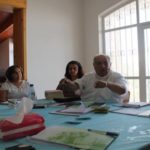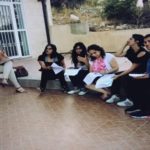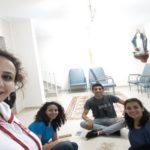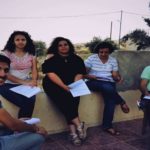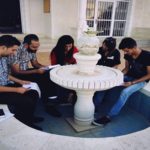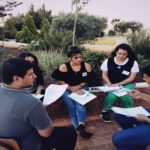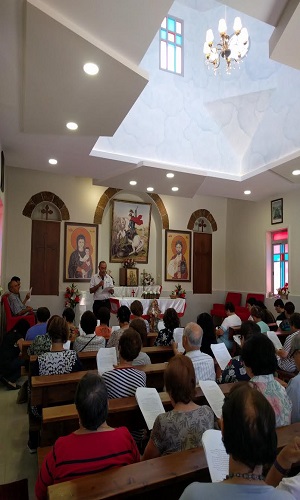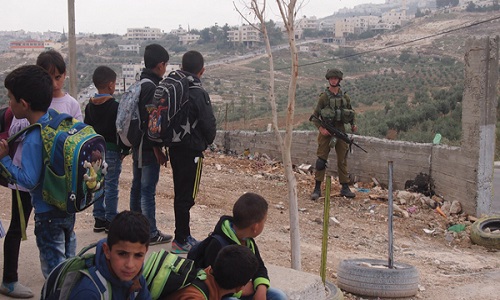
Half a Century of Occupation – What Next?
On June 5, 2017, Palestinians all around the world will commemorate fifty years of occupation of the West Bank, including East Jerusalem, and the Gaza Strip. Palestinians will remember that these 50 years were only the second stage of the Nakba (catastrophe) of Palestine when Israel conquered the whole land.
When we survey the 69 years since the Nakba, we can notice the incremental expansions of Zionist Israel. Israel can be likened to a bulldozer plowing through Palestine and taking it bit by bit. In fact, one of the main reasons for failing to arrive at a possible resolution of the conflict is that Israel has never been satisfied with what it had of Palestine and was always craving for more. Israel has always been ravenous for more land. It has always found ways to maneuver around the requirements of peace and to thwart it. It has always found deceptive ways to put the blame on the Palestinians. It wanted the land without its indigenous people.
There are still a few more areas of Palestine that Israel craves. In fact, the prize of Religious Zionism has not yet been attained. The heart of Jerusalem is still not totally in Israel’s hands. It is looking for the opportune moment to grab it. Israel is like a famished tiger that is waiting for the right moment to pounce at its prey and devour it. The prize is the Haram area which Israel calls “the temple mount”. These Jewish religious Zionist fanatics are impatiently waiting for the best prize of all.
From a Palestinian perspective, there are two ugly faces of Zionism. The first was secular Zionism. It stripped the Palestinians of 78% of their land. In the 1970s, it was replaced by an uglier face, that of religious Zionism, which occupied the remaining 22%. Religious Zionism stripped the Palestinians of the rest of Palestine. It is probable that after establishing control over the whole land, religious Zionism will turn against secular Zionist ideology and replace it with Jewish religious law (Halakha). If and when that happens, any modicum of Israeli democracy will evaporate and the state of Israel will become, true to its name, a Jewish state not unlike some neighboring countries that it now criticizes where religion has the upper hand.
These words might seem to present a pessimistic and negative vision of the future, but if religion (any religion) takes on political power, then there is no room for democracy, equality under the law, or respect for others. If this seems farfetched, listen to the Deputy Speaker of the Knesset, Betzalel Smotrich, of the Jewish Home Party, who dubbed his political agenda “the subjugation plan” (Haaretz, May 16, 2017). Under his plan, “the Palestinians will be given three choices – to leave the country; to live in Israel with the status of ‘resident alien,’ because…according to Jewish law there must always be some inferiority, or to resist, and then the Israel Defense Forces will know what to do.” Smotrich was inspired by the Midrash on the Book of Joshua where God commanded the ancient Israelites to annihilate the indigenous people of Jericho. This is Smotrich’s final solution.
This face of Zionism has grown uglier and scarier by the day. The government of Israel has been sure to keep it hidden from western Christians and even western Jews. But it is slowly becoming more conspicuous to a growing number of people.
The Israeli unification of Jerusalem is a farce. It is true that Israel conquered East Jerusalem but it has not been able to unify it. The Palestinian people refuse to accept it. It is occupied territory. Most Israeli people do not set foot in it. Most Jewish taxi cabs refuse to come to it. Even Israeli ambulances do not come without military escort. In spite of Israel’s Judaization of it, it is still by and large a Palestinian city.
What are the challenges ahead?
It is important to realize that the struggle for justice will take a much longer time than we have anticipated, and much more effort. It seems unlikely that the United Nations, the United States, the European Union, the Arab League, or any other local or international body is willing or capable of resolving the conflict. The Palestinian people became the victims and were sacrificed so that the West could atone for the sin of anti-Semitism. Israel and its occupation is empowered militarily and economically by the western countries who will continue to defend it politically regardless of its violations of human rights and international law.
Our Palestinian people need to invest in alternative power that Israel does not possess, namely, the power of nonviolence. We need to build a culture of peace and nonviolence. Daily mass nonviolent rallies need to take place throughout the land until the world community begins to hear again the cry of the Palestinians. Our people need to discover and believe in the amazing power of nonviolence. Israel has built its state on the power of violence. We need to build our state on the power of peace and nonviolence. Nonviolence can take many forms such as political and economic pressure, because Israel will not end the occupation until it becomes costly. Today it is profitable.
For the local and international churches: Justice and peace is the work of the church. Jesus was very political when he said, “Blessed are the peacemakers for they shall be called children of God.” Peacemaking is part of the essence of the church’s work. If the clergy are not engaged, then a very important dimension of their ministry is missing. The prophetic voice of church leaders must be heard. It must be undergirded by a clear, nonviolent strategy, and courage.
We need the help of the Jewish people: It is true that the Palestine/Israel conflict is between Zionist Israel and the Palestinians. But it is also a conflict between justice and injustice, between international law and tribal and nationalist ideologies. There are an increasing number of Jews who are conscientious about justice for the Palestinians on the basis of UN resolutions and international law. We challenge them to step up their struggle against injustice and oppression. They can do much more. We need their help.
There can never be peace without justice, and justice will never die so long as there are people who yearn for it, work for it, and sacrifice for it. It could, and may take a long time. In fact, it is time for the Palestinians who cannot even come to visit Jerusalem to adopt the slogan of our cousins, “Next year in Jerusalem.” Our people must continue to live in the hope of liberation and peace, remembering the words of the Apostle Paul, “[we know] that suffering produces endurance, and endurance produces character, and character produces hope, and hope does not disappoint us, because God’s love has been poured into our hearts through the Holy Spirit that has been given to us” (Romans 5:3-5).
Naim Ateek
Chair of Sabeel Board, Jerusalem
June 5, 2017
Sabeel Statement on 50 Years of Occupation
Déclaration de Sabeel Jérusalem sur 50 ans d’occupation F


